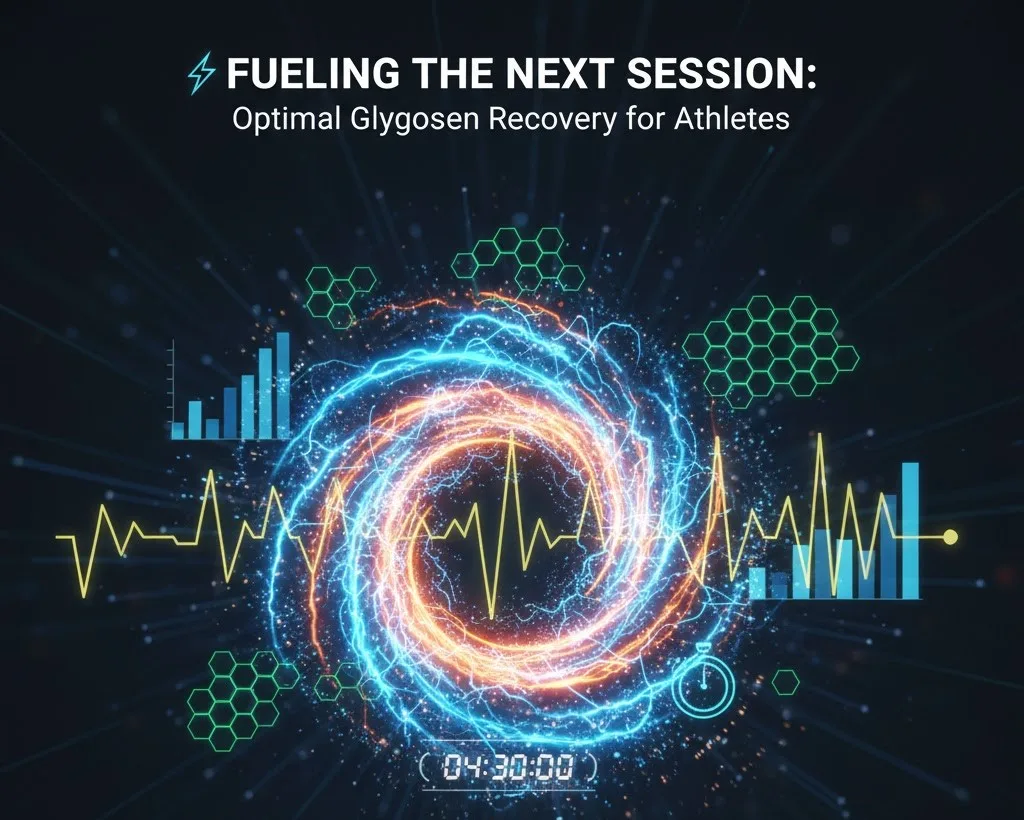For any athlete, whether an endurance runner, a strength competitor, or a team sport player, the ability to recover quickly is just as critical as the training itself. The cornerstone of this recovery process is the efficient replenishment of muscle glycogen, the primary fuel source stored in the body for high-intensity or prolonged exercise.
When exercise is intense or long-lasting, the body heavily depletes its glycogen stores. Studies show that a single, moderate-to-high-intensity training session can reduce muscle glycogen by 24% to 40% in resistance training, and nearly complete depletion can occur after several hours of intense endurance work. Without proper refueling, an athlete's ability to maintain intensity and output in the next session will be severely compromised.
The Critical Timing of Carbohydrate Intake
The necessity and urgency of post-exercise carbohydrate intake depend directly on the time available before the athlete's next session.
1. The 24-Hour Recovery Window
If an athlete has a full 24 hours of rest before their next demanding session, the timing of the carbohydrate intake is less crucial. The most important factor is consuming the total recommended daily amount of carbohydrates throughout the day to ensure full recovery. For an athlete, this daily target typically ranges from 6–10 grams of carbohydrate per kilogram (g/kg) of body weight, depending on the intensity and volume of their training.
2. Maximizing Recovery for Multiple Sessions
The "golden window" for carbohydrate consumption becomes absolutely critical when an athlete faces limited recovery time (e.g., less than 8 hours, such as two training sessions in one day or a tournament schedule).
To maximize the rate of glycogen synthesis in this scenario, athletes should immediately consume high-glycemic carbohydrates in the hours following the first session. The standard recommendation is to consume 1.0–1.2 grams of carbohydrate per kilogram of body weight per hour for the first 4 to 6 hours. This strategy aims to leverage the increased insulin sensitivity and glucose uptake capacity of muscle cells immediately post-exercise. Failing to consume carbohydrates in the first two hours can reduce the initial rate of replenishment by up to 50%.
The Role of Protein in Fueling and Repair
While carbohydrates are the primary fuel for replenishing glycogen, protein intake is essential for muscle repair and adaptation. When co-ingested with carbohydrates, protein can also enhance glycogen synthesis, especially if the carbohydrate intake is suboptimal or limited.
-
Optimal Ratio: For enhanced recovery, a ratio of approximately 3:1 or 4:1 (Carbohydrate to Protein) is often recommended. For instance, a post-workout recovery shake might combine 60 grams of easily-absorbed carbohydrates with 15–20 grams of high-quality protein.
-
Benefits: The addition of protein has been shown to result in similar glycogen replenishment rates as consuming a higher amount of carbohydrates alone, partly due to its ability to stimulate a higher insulin response. This simultaneous intake effectively supports both refueling (glycogen) and repair (muscle protein synthesis), providing a comprehensive recovery solution for the dedicated athlete.
Ultimately, a tailored nutrition plan that strategically incorporates the right amount of carbohydrates—at the right time—is non-negotiable for athletes seeking to sustain high performance across demanding training and competition schedules.

